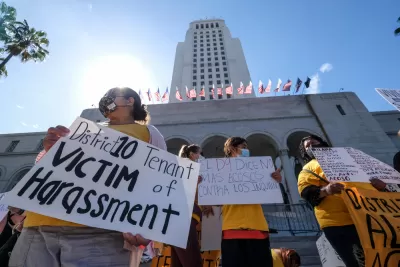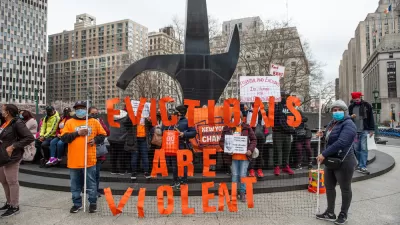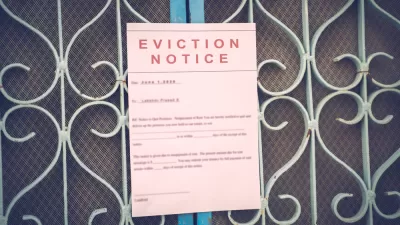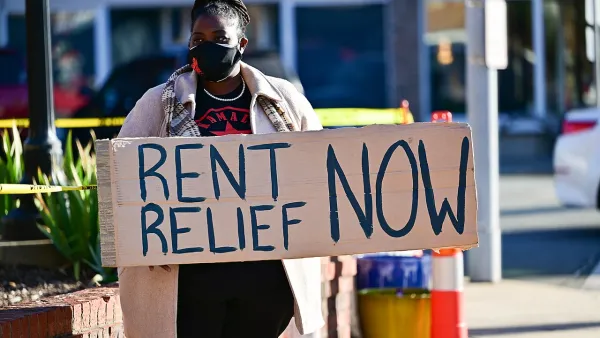With the U.S. Supreme Court refusing to hear the latest challenge to the city’s eviction moratorium, eviction protections in Los Angeles remain in place—for now.

“On Monday, the U.S. Supreme Court decided not to take up an appeal from the Apartment Association of Greater Los Angeles (AAGLA). The decision effectively leaves in place the city of L.A.’s ongoing eviction protections for renters negatively affected by the COVID-19 pandemic,” reports David Wagner.
“Tenant advocates hailed the decision as a victory for local governments that passed policies to protect renters from losing their homes during a deadly and economically perilous pandemic.” Meanwhile, “The group representing local property owners [AAGLA] argued the city’s eviction moratorium illegally meddled with lease contracts signed by landlords and tenants.”
Rent relief efforts throughout the state have attempted to compensate landlords for missed payments during the pandemic, but those efforts have left many landlords hanging. With applications now closed, about half of applicants in L.A. County are still waiting for funding, and some small landlords with delinquent tenants have been completely shut out of the state’s rent relief program.
Wagner notes that “The city’s eviction rules have made it much harder for landlords to remove non-paying tenants, but the policy has not stopped all eviction proceedings from moving forward. In many cases, L.A. tenants unable to pay rent say they’ve instead faced evictions for what they consider exaggerated charges of nuisance.”
While housing advocates feared that the end of pandemic-era eviction moratoriums would lead to an ‘eviction tsunami,’ recent data shows that evictions are actually at low levels, historically speaking. However, with housing costs continuing to rise (despite a predicted crash), the disruptions in jobs and the housing market during the last two years could still have long-term impacts on rent and housing affordability.
FULL STORY: LA’s Eviction Moratorium Holds As Supreme Court Refuses To Hear Landlords’ Challenge

Planetizen Federal Action Tracker
A weekly monitor of how Trump’s orders and actions are impacting planners and planning in America.

Restaurant Patios Were a Pandemic Win — Why Were They so Hard to Keep?
Social distancing requirements and changes in travel patterns prompted cities to pilot new uses for street and sidewalk space. Then it got complicated.

Map: Where Senate Republicans Want to Sell Your Public Lands
For public land advocates, the Senate Republicans’ proposal to sell millions of acres of public land in the West is “the biggest fight of their careers.”

Maui's Vacation Rental Debate Turns Ugly
Verbal attacks, misinformation campaigns and fistfights plague a high-stakes debate to convert thousands of vacation rentals into long-term housing.

San Francisco Suspends Traffic Calming Amidst Record Deaths
Citing “a challenging fiscal landscape,” the city will cease the program on the heels of 42 traffic deaths, including 24 pedestrians.

California Homeless Arrests, Citations Spike After Ruling
An investigation reveals that anti-homeless actions increased up to 500% after Grants Pass v. Johnson — even in cities claiming no policy change.
Urban Design for Planners 1: Software Tools
This six-course series explores essential urban design concepts using open source software and equips planners with the tools they need to participate fully in the urban design process.
Planning for Universal Design
Learn the tools for implementing Universal Design in planning regulations.
Heyer Gruel & Associates PA
JM Goldson LLC
Custer County Colorado
City of Camden Redevelopment Agency
City of Astoria
Transportation Research & Education Center (TREC) at Portland State University
Camden Redevelopment Agency
City of Claremont
Municipality of Princeton (NJ)





























